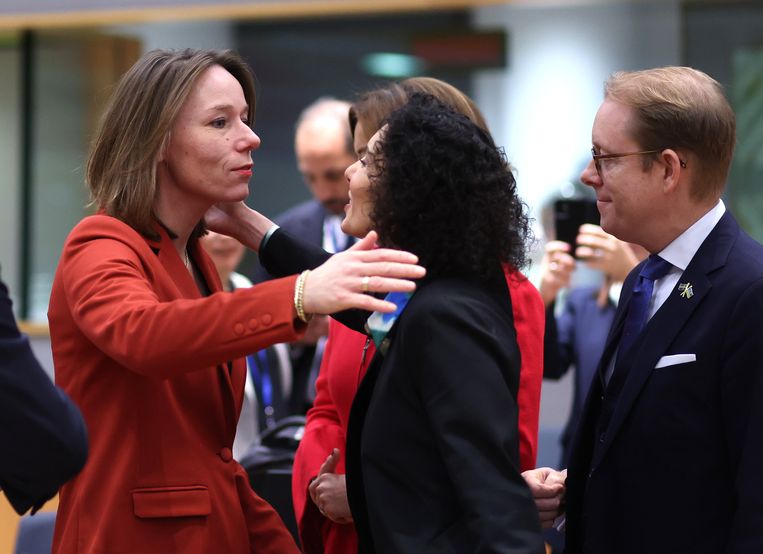They saw children who should have been in foster care. They know the number of children killed. She doesn’t want to say the word “desperate” yet, but outgoing Foreign Minister Hanke Bruins-Slote says she, like her 26 colleagues, is “fully aware of the seriousness of the situation in Gaza.” But what can the European Union do? Even if the warring parties listen to what Brussels has to say, it is still not a clear message.
In recent days, there has been renewed unrest in European government centers, which began when French President Emmanuel Macron called on his colleagues on British television to follow him in calling for a ceasefire. He said: “It is incomprehensible that we are fighting terrorism by killing civilians.”
What followed was a weekend of telephone calls, at least among the 27 EU member states. But it did not reach the formal ceasefire position that Macron so desperately desired. Austria, Germany and the Czech Republic do not like it. The EU now has a common position that is only one degree sharper than before: first it asked Israel for a “humanitarian truce,” and now European governments are demanding an “immediate combat truce.”
A step forward
“I understand the demand for a ceasefire,” German Foreign Minister Annalena Baerbock said on Monday while speaking with her fellow European ministers in Brussels. But Baerbock first wants guarantees that Israel will remain safe if the parties lay down their weapons. Germany does not believe for a moment that Hamas will adhere to such an agreement and fears that this would lead to Israel being instantly wiped off the map.
Minister Bruins Sloat says on behalf of the Netherlands that the call for immediate breaks “is in any case a step forward.” “Previously, the European Union was not certain about this matter.”
But the human rights group Amnesty International is strongly critical of the European debate. “The EU claims to be a champion of human rights and international law. In the eyes of people around the world, the EU itself is now facing a serious credibility crisis,” Eve Guede, director of Amnesty International’s European office, said on Monday.
Caring for sick and wounded Palestinian children
The Netherlands is now trying to provide practical solutions. Outgoing Healthcare Minister Ernst Kuipers and Foreign Minister Bruins announced that the Netherlands was willing to take care of sick and injured Palestinian children if it was possible for them to leave the area. Previously, there was talk that Israel would allow the evacuation of children, but that has not happened yet.
However, four Dutch people were still able to leave the area on Monday. The third group was Dutch. Six people were able to leave the area on Sunday, and at the beginning of November sixteen people were able to leave.
There is no known news about the fate of Dutchman Ofir Engel, who was among the people taken hostage by Hamas. The Dutch government is trying to release him through diplomatic channels. According to Bruins-Sloat, discussions on this matter are taking place mainly through Qatar, which is trying to mediate all the hostages.
Read also:
Gershon Baskin previously mediated between Israel and Hamas: “They are all playing games”
Gershon Baskin gained fame when he mediated between Israel and Hamas years ago. He follows current developments with interest. “If the soldiers stop fighting now, they will become sitting ducks.”


